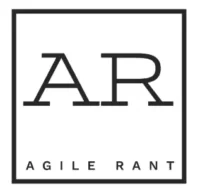The software development landscape is undergoing a seismic shift. No longer is it solely the domain of engineers, coders, and architects. A new era is dawning, one where AI is empowering teams of all disciplines to contribute directly to the product development process. This paradigm shift is not just about efficiency; it’s about unlocking the full potential of your workforce.
Traditionally, software development has been resource-intensive. Teams were large, specialized, and often siloed. The demands of complex projects required significant engineering expertise. This model, while effective, was also limiting. It constrained the number of teams that could be formed, hindering the organization’s ability to innovate rapidly.
Enter AI. By automating routine tasks, providing intelligent code suggestions, and offering real-time insights, AI is dramatically enhancing the capabilities of development teams. This technological leapfrog is creating a new model where smaller, cross-functional teams can achieve the output of larger, traditionally structured ones.
Imagine a scenario where a product owner, armed with AI-powered tools, can not only define product requirements but also contribute directly to the product’s architecture. Or a designer who, with the help of AI, can translate their designs into functional code prototypes. This is no longer a futuristic vision; it’s becoming a reality.
How do you get there?
To realize this potential, organizations must embrace a culture of technical empowerment. Product owners, product managers, and other non-technical roles need to be equipped with the necessary tools and training to engage with technical aspects of the product. This doesn’t mean everyone needs to become a full-stack developer. Rather, it’s about developing a basic understanding of coding, system architecture, and software development processes.
AI can act as a bridge, making the technical world accessible to a wider audience. By providing user-friendly interfaces, intelligent code suggestions, and automated testing, AI can significantly lower the barrier to entry for non-technical roles. This democratization of technology has far-reaching implications.
Leverage correctly to be an accelerator
Firstly, it accelerates product development. When more people are involved in the process, there’s a greater pool of ideas, leading to faster innovation. Secondly, it improves product quality. A deeper understanding of technical constraints and possibilities among non-technical roles leads to more realistic product requirements and better-aligned designs. Thirdly, it enhances collaboration. When teams share a common language and understanding of the product, communication becomes smoother, and problems are solved more efficiently.
Of course, this transformation requires careful planning and execution. Organizations need to invest in AI tools, provide comprehensive training, and foster a culture of experimentation. It’s essential to establish clear guidelines and processes to ensure that AI is used effectively and ethically.
The future of software development is bright. By leveraging AI to empower cross-functional teams, organizations can unlock new levels of productivity, innovation, and agility. It’s a journey that requires courage, investment, and a willingness to embrace change. But the rewards are immense.
Know any teams or organizations that want people like this?
Here at Agile Rant we know a great technical product manager that can help teams do work in this model and happens to be looking for that next role. If want to connect, hit us up [email protected] to setup a connection.
Want to learn how to write great AI prompts and save yourself time and effort?
#technology #softwaredevelopment #productdevelopment #productmanagement #software #communications #agile #scrum #devops #engineering #techindustry #digitaltransformation artificialintelligence #ai #machinelearning #automation #robotics #techtrends #futureofwork teamenpowerment #crossfunctionalteams #collaboration #teamwork #empowerment #diversityandinclusion aitech #aipowered #softwareengineering #productstrategy #techleadership #innovation #productivity #efficiency

